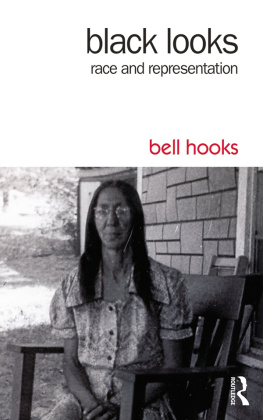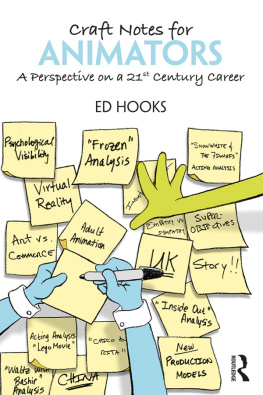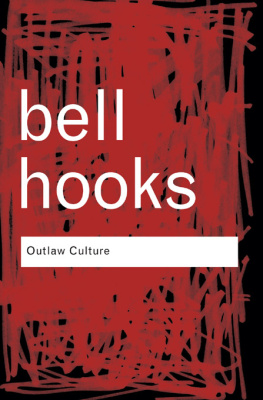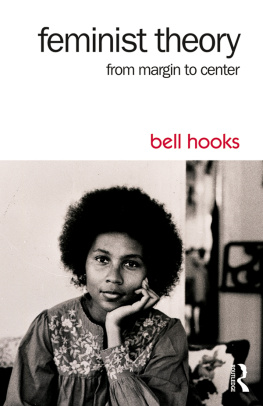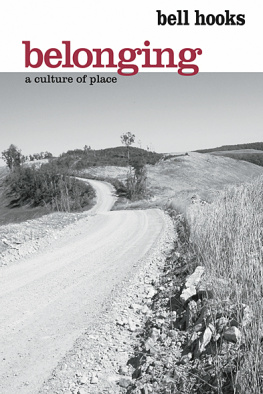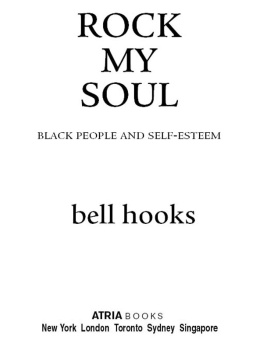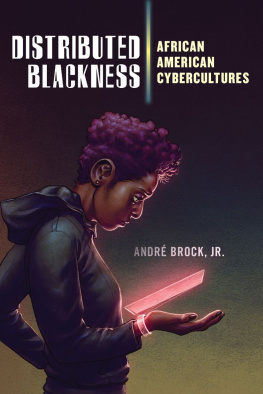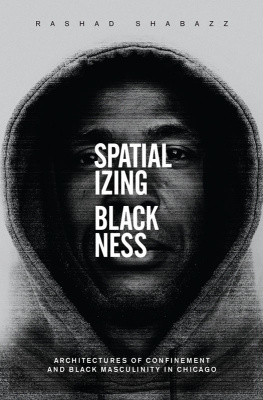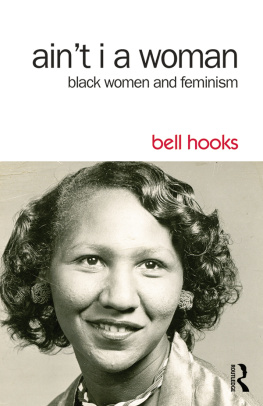1
Loving Blackness as Political Resistance
We have to change our own mind Weve got to change our own minds about each other. We have to see each other with new eyes. We have to come together with warmth
Malcolm X
The course I teach on black women writers is a consistent favorite among students. The last semester that I taught this course we had the usual passionate discussion of Nella Larsons novel Passing. When I suggested to the class (which had been more eager to discuss the desire of black folks to be white) that Clare, the black woman who has passed for white all her adult life and married a wealthy white businessman with whom she has a child, is the only character in the novel who truly desires blackness and that it is this desire that leads to her murder, no one responded. Clare boldly declares that she would rather live for the rest of her life as a poor black woman in Harlem than as a rich white matron downtown. I asked the class to consider the possibility that to love blackness is dangerous in a white supremacist cultureso threatening, so serious a breach in the fabric of the social order, that death is the punishment. It became painfully obvious by the lack of response that this group of diverse students (many of them black people) were more interested in discussing the desire of black folks to be white, indeed were fixated on this issue. So much so, that they could not even take seriously a critical discussion about loving blackness.
They wanted to talk about black self-hatred, to hear one another confess (especially students of color) in eloquent narratives about the myriad ways they had tried to attain whiteness, if only symbolically. They gave graphic details about the ways they attempted to appear white by talking a certain way, wearing certain clothing, and even choosing specific groups of white friends. Blonde white students seized the opportunity to testify that they had never realized racism had this impact upon the psyches of people of color until they started hanging out with black friends, taking courses in Black Studies, or reading Toni Morrisons The Bluest Eye. And better yet, they never realized there was such a thing as white privilege until they developed non-white connections.
I left this class of more than forty students, most of whom see themselves as radical and progressive, feeling as though I had witnessed a ritualistic demonstration of the impact white supremacy has on our collective psyches, shaping the nature of everyday life, how we talk, walk, eat, dream, and look at one another. The most frightening aspect of this ritual was the extent to which their fascination with the topic of black self-hatred was so intense that it silenced any constructive discussion abut loving blackness. Most folks in this society do not want to openly admit that blackness as sign primarily evokes in the public imagination of whites (and all the other groups who learn that one of the quickest ways to demonstrate ones kinship within a white supremacist order is by sharing racist assumptions) hatred and fear. In a white supremacist context loving blackness is rarely a political stance that is reflected in everyday life. When present it is deemed suspect, dangerous, and threatening.
The oppositional black culture that emerged in the context of apartheid and segregation has been one of the few locations that has provided a space for the kind of decolonization that makes loving blackness possible. Racial integration in a social context where white supremacist systems are intact undermines marginal spaces of resistance by promoting the assumption that social equality can be attained without changes in the cultures attitudes about blackness and black people. Black progressives suffered major disillusionment with white progressives when our experiences of working with them revealed that they could want to be with us (even to be our sexual partners) without divesting of white supremacist thinking about blackness. We saw that they were often unable to let go the idea that whites are somehow better, smarter, more likely to be intellectuals, and even that they were kinder than black folks. Decolonized progressive black individuals are daily amazed by the extent to which masses of black people (all of whom would identify themselves as anti-racist) hold to white supremacist ways of thinking, allowing this perspective to determine how they see themselves and other black people. Many black folks see us as lacking, as inferior when compared to whites. The paucity of scholarly work looking at the issue of black self-hatred, examining the ways in which the colonization and exploitation of black people is reinforced by internalized racial hatred via white supremacist thinking, is awesome. Few black scholars have explored extensively black obsession with whiteness.
Black theologian James Cone has been one of the few insurgent black intellectuals who has consistently called for critical interrogation of whiteness while simultaneously problematizing constructions of white identity within white supremacist culture. In his early work, A Black Theology of Liberation, Cone urges folks to understand blackness as an ontological symbol that is the quintessential signifier of what oppression means in the United States. Cone calls upon whites, blacks, and all other non-black groups to stand against white supremacy by choosing to value, indeed to love, blackness. Boldly stating his case, Cone suggests:
Most whites, some despite involvements in protests, do believe in freedom in democracy, and they fight to make the ideals of the Constitution an empirical reality for all. It seems that they believe that, if we just work hard enough at it, this country can be what it ought to be. But it never dawns on these do-gooders that what is wrong with America is not its failure to make the Constitution a reality for all, but rather its belief that persons can affirm whiteness and humanity at the same time. This country was founded for whites and everything that has happened in it has emerged from the white perspectiveWhat we need is the destruction of whiteness, which is the source of human misery in the world.
Not surprisingly, many of Cones readers were disturbed by his evocation of a binary approach. At first glance it can appear to be a mere reversal of white racist paradigms. Blackness in much of his early work is identified with that which is good, righteous, positive and whiteness with all that is bad, negative, sinful.
Cone wanted to critically awaken and educate readers so that they would not only break through denial and acknowledge the evils of white supremacy, the grave injustices of racist domination, but be so moved that they would righteously and militantly engage in anti-racist struggle. Encouraging readers to break with white supremacy as an epistemological standpoint by which they come to know the world, he insisted that whiteness as a sign be interrogated. He wanted the public to learn how to distinguish that racism which is about overt prejudice and domination from more subtle forms of white supremacy. In his early work, he frequently chose a rhetoric that would shock so as to forcefully impress on the readers consciousness the seriousness of the issues. Unfortunately, many readers were turned off by his rhetorical stance, his emphasis on binary opposition, and could not hear the wisdom in his call for a critique of whiteness. By focusing on his personal style, many readers willingly allowed themselves to dismiss and/or ignore the extent to which (all polemical rhetoric aside) his discourse on whiteness was a necessary critical intervention, calling for ongoing interrogation of conventional ways of thinking about race or about strategies to eradicate racism.
Cone was suggesting the kind of shift in positionality that has become a crucial and widely accepted tenet of anti-racist struggle advocated in much recent critical work on the subject of race, especially the work that emerges from feminist theory, cultural studies, and postcolonial discourse. Whether they are able to enact it as a lived practice or not, many white folks active in anti-racist struggle today are able to acknowledge that all whites (as well as everyone else within white supremacist culture) have learned to over-value whiteness even as they simultaneously leam to devalue blackness. They understand the need, at least intellectually, to alter their thinking. Central to this process of unlearning white supremacist attitudes and values is the deconstruction of the category whiteness.

